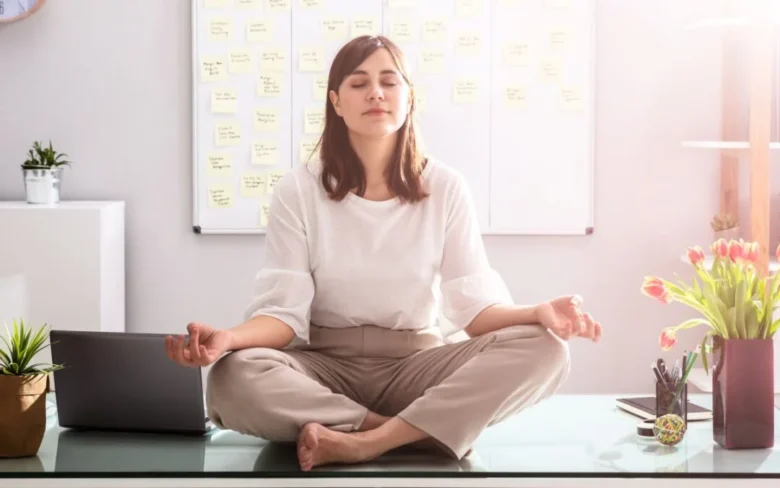Stress and anxiety are natural responses to life’s challenges. However, when these feelings become overwhelming or chronic, they can negatively affect mental and physical health. Managing stress and anxiety is crucial for maintaining balance and well-being. The good news is that there are effective strategies to cope with and reduce these feelings.
In this guide, we’ll explore practical techniques and lifestyle changes to help manage stress and anxiety in everyday life. By incorporating these strategies into your routine, you can take control of your mental health and improve your overall quality of life.
Understanding Stress and Anxiety
Before diving into how to manage stress and anxiety, it’s important to understand what they are and how they manifest.
Stress
Stress is the body’s natural response to challenges or demands, whether physical, emotional, or environmental. Short-term stress can be helpful, such as when it motivates you to complete a task or face a difficult situation. However, chronic stress occurs when the body’s fight-or-flight response remains active for extended periods, which can lead to health problems like headaches, digestive issues, and increased risk of cardiovascular disease.
Anxiety
Anxiety is a feeling of unease, such as worry or fear, often about a situation or event. While it’s normal to feel anxious in certain situations, like before a presentation or exam, anxiety becomes problematic when it’s excessive, persistent, and interferes with daily life. Anxiety can manifest physically as increased heart rate, shallow breathing, and muscle tension, or mentally as constant worry, racing thoughts, and a sense of impending doom.
How to Manage Stress and Anxiety
There are several practical methods you can use to manage stress and anxiety. These strategies focus on relaxation, positive thinking, and lifestyle changes that promote emotional and physical health.
1. Practice Deep Breathing
Deep breathing is one of the simplest and most effective ways to calm the nervous system and reduce stress and anxiety. When you’re feeling overwhelmed, take a moment to focus on your breath. Try the 4-7-8 breathing technique:
-
Inhale through your nose for a count of 4.
-
Hold your breath for a count of 7.
-
Exhale slowly through your mouth for a count of 8.
Repeat this cycle several times. This practice helps lower heart rate, reduce muscle tension, and relax your mind.
2. Exercise Regularly
Physical activity is a powerful tool for reducing stress and anxiety. Exercise helps release endorphins, which are natural mood boosters. It also helps lower cortisol levels (the stress hormone) and promotes better sleep. You don’t have to engage in intense workouts to see benefits. Even a daily walk, yoga session, or stretching routine can help alleviate tension and improve your mood.
3. Practice Mindfulness and Meditation
Mindfulness involves focusing on the present moment without judgment. This practice can help you become more aware of your thoughts and feelings, allowing you to manage them more effectively. Meditation is a great way to cultivate mindfulness. By setting aside just a few minutes each day to meditate, you can reduce the impact of stress and anxiety on your life.
Some easy mindfulness techniques include:
-
Focusing on your breath.
-
Paying attention to your senses (sight, sound, smell, touch).
-
Performing a body scan to relax each part of your body.
4. Develop a Healthy Sleep Routine
Sleep is vital for managing stress and anxiety. Lack of sleep can make you more susceptible to feeling stressed and anxious. Establish a regular sleep schedule by going to bed and waking up at the same time each day. Create a relaxing bedtime routine, such as reading, meditating, or taking a warm bath, to prepare your body and mind for restful sleep.
If you struggle with falling asleep, avoid caffeine and heavy meals close to bedtime, and limit screen time (phones, tablets, computers, TVs) in the hour leading up to sleep.
5. Stay Organized and Prioritize Tasks
Stress often arises from feeling overwhelmed by responsibilities. One way to manage this stress is by organizing your tasks and setting priorities. Break large projects or goals into smaller, manageable tasks and focus on completing one task at a time. Use tools like calendars, to-do lists, or digital apps to stay on top of your responsibilities.
Additionally, learn to delegate or say no to unnecessary tasks that could overwhelm you. Recognizing your limits and setting realistic expectations is key to managing stress.
6. Build a Support Network
Having a strong support system can make a huge difference in managing stress and anxiety. Talk to friends, family members, or colleagues when you’re feeling overwhelmed. Sometimes, just sharing your concerns can provide emotional relief.
Consider joining a support group, either in person or online, where you can connect with others who are experiencing similar challenges. Additionally, if you’re feeling anxious or stressed frequently, consider seeking professional help from a therapist or counselor.
7. Limit Caffeine and Alcohol
Caffeine and alcohol can both contribute to heightened anxiety levels. While caffeine may provide a temporary energy boost, it can also increase heart rate and trigger feelings of restlessness. Excessive alcohol consumption can exacerbate anxiety symptoms and disrupt sleep patterns.
Try to limit your intake of caffeine and alcohol, especially during stressful times, and opt for healthier alternatives such as herbal tea or water.
8. Practice Self-Care
Taking time to care for yourself is essential for managing stress. Engaging in activities you enjoy, whether it’s reading, gardening, crafting, or listening to music, can help you unwind and relax. Regularly engaging in hobbies or leisure activities provides an emotional outlet and helps reduce the negative effects of stress.
Additionally, self-care includes making time for relaxation and setting aside time each day to unwind, whether through a warm bath, massage, or simply sitting quietly.
9. Challenge Negative Thoughts
Stress and anxiety are often fueled by negative or irrational thinking patterns. You may tend to catastrophize (imagining the worst-case scenario) or engage in all-or-nothing thinking. When these negative thoughts arise, try to challenge them by considering the facts and evidence.
Ask yourself:
-
Is this thought based on reality?
-
What evidence do I have that supports or contradicts this thought?
-
How likely is it that the worst-case scenario will happen?
Reframing negative thoughts can help reduce anxiety and prevent the spiral of worry.
10. Seek Professional Help
If your stress and anxiety are significantly impacting your daily life and well-being, consider seeking help from a mental health professional. A therapist or counselor can provide you with coping tools, techniques for managing anxiety, and emotional support. In some cases, medication may be prescribed to help manage symptoms of anxiety or stress.
Don’t hesitate to reach out to a professional if you feel that your mental health is beyond what you can handle alone.
Final Thoughts
Stress and anxiety are inevitable parts of life, but they don’t have to control your life. By adopting healthy habits, practicing self-care, and incorporating relaxation techniques, you can effectively manage stress and anxiety in your everyday routine. Remember, it’s okay to ask for help when needed, and you don’t have to navigate stress alone. With the right tools and support, you can lead a calmer, more balanced life.




